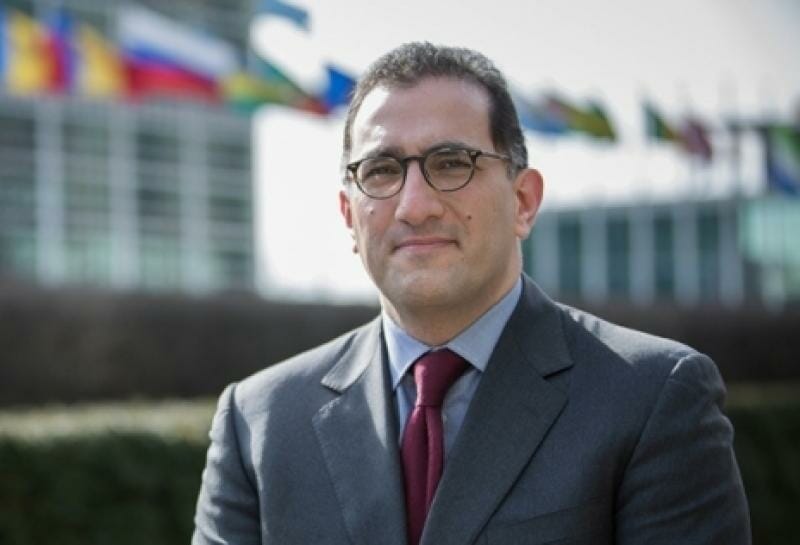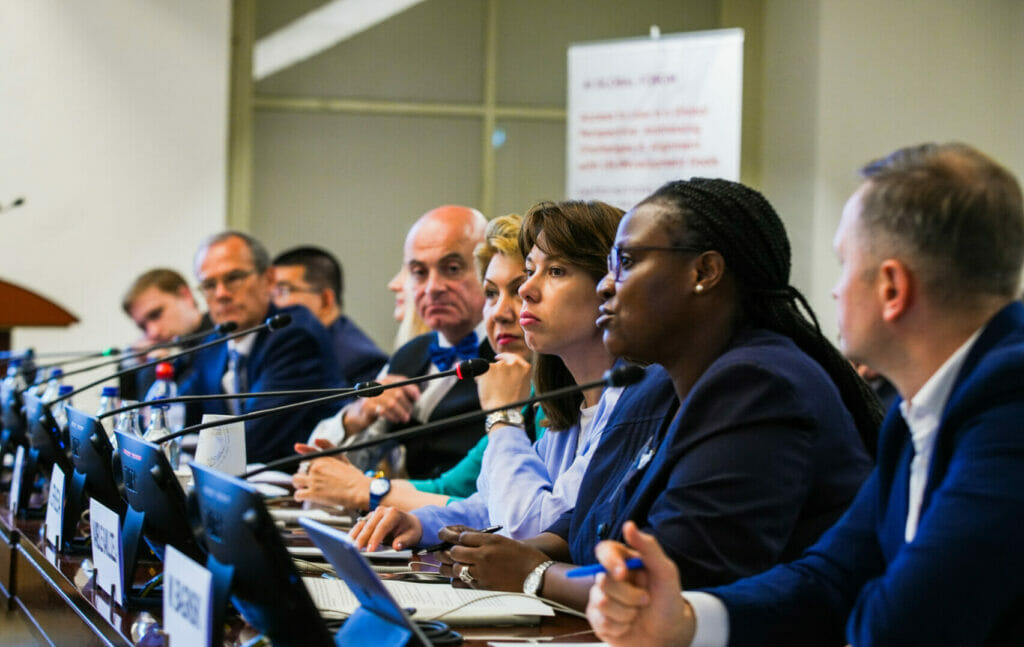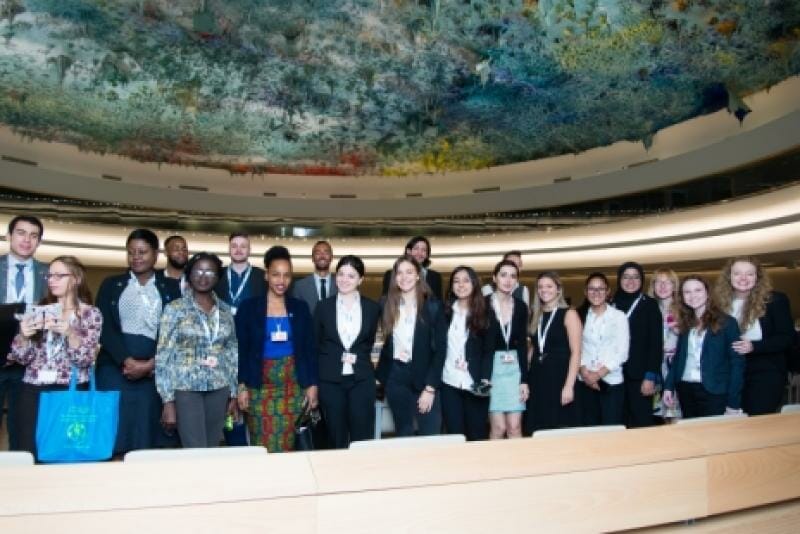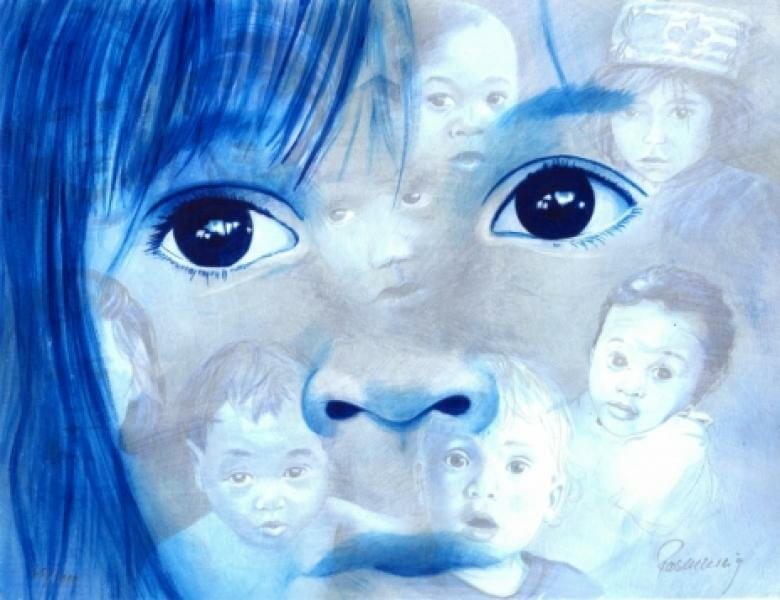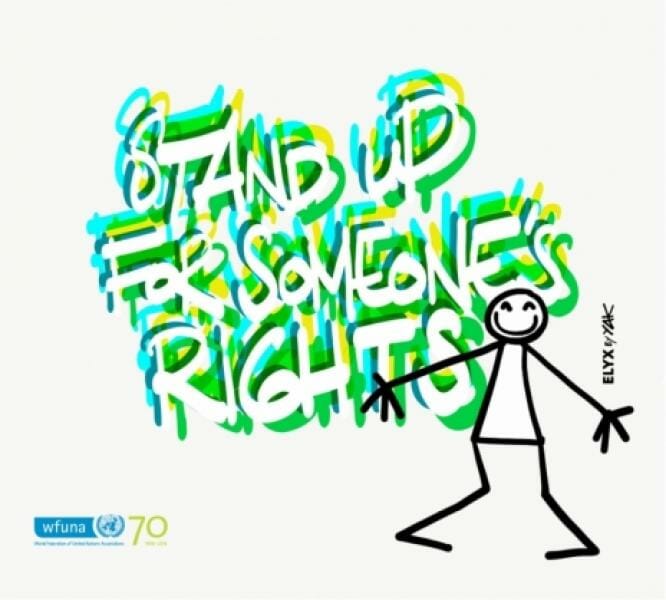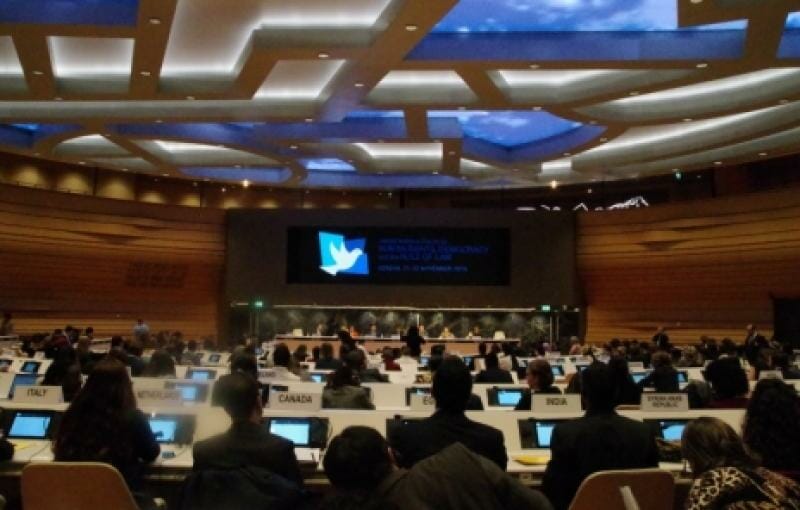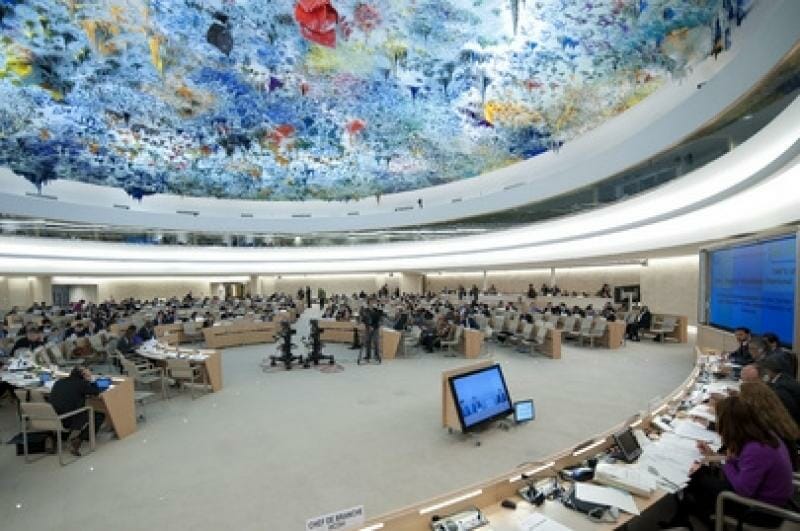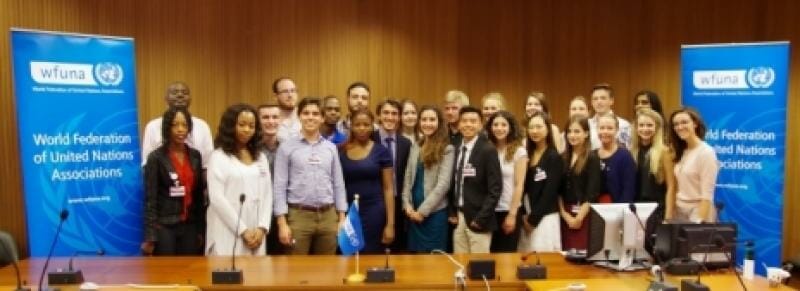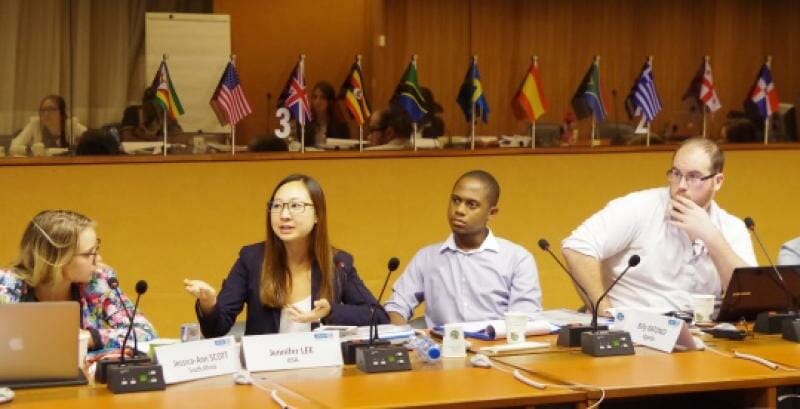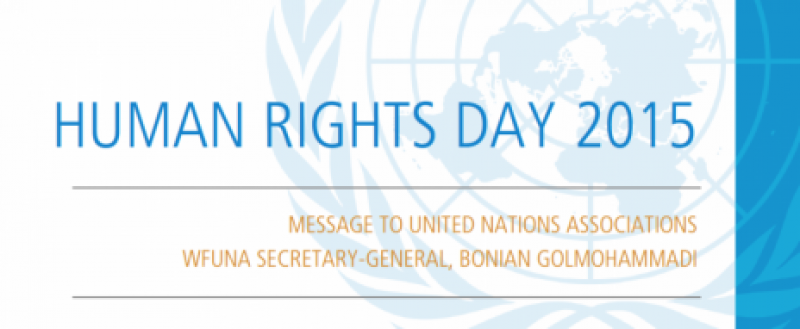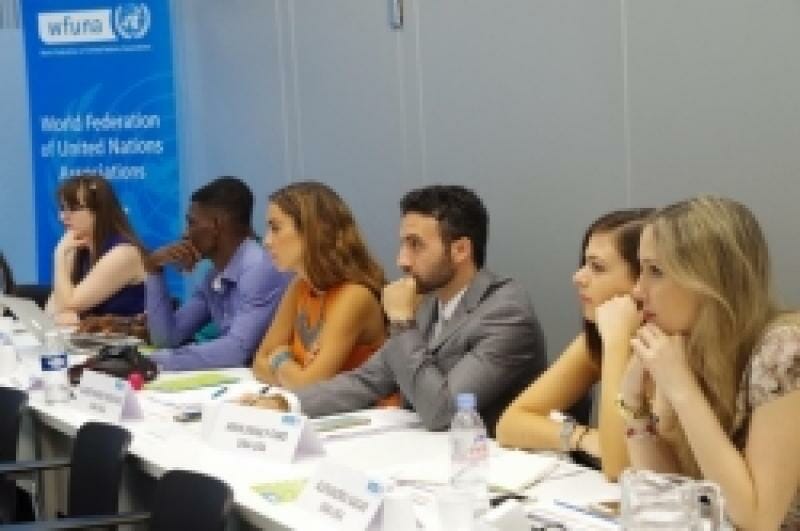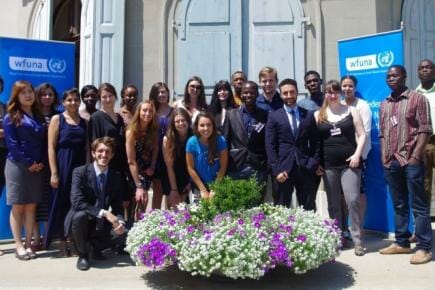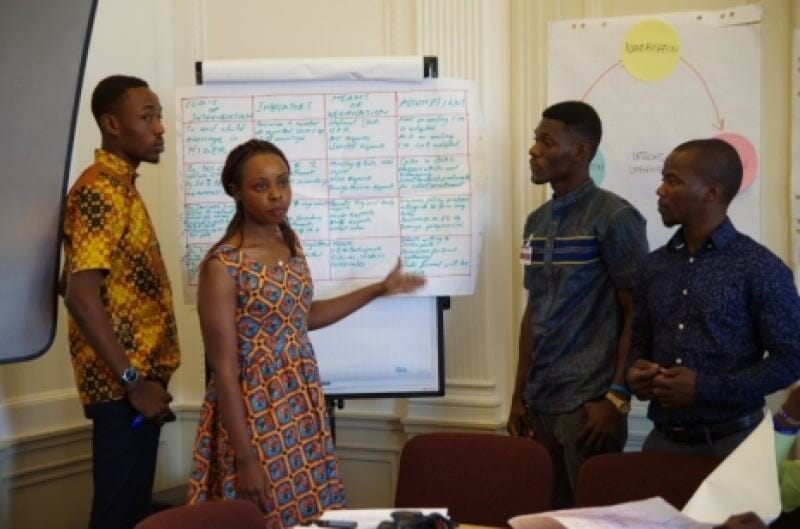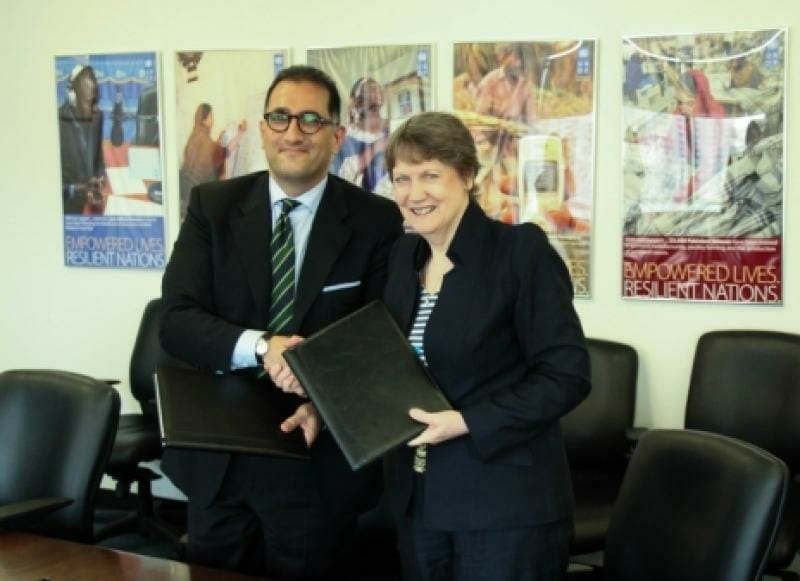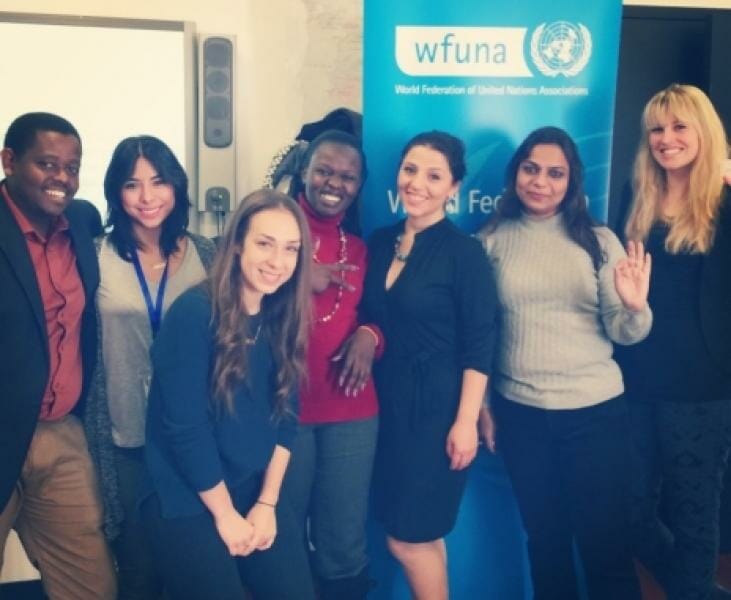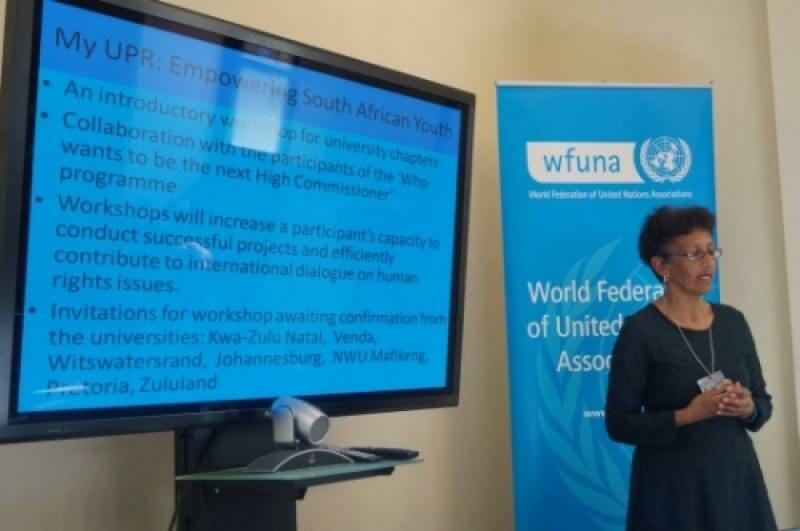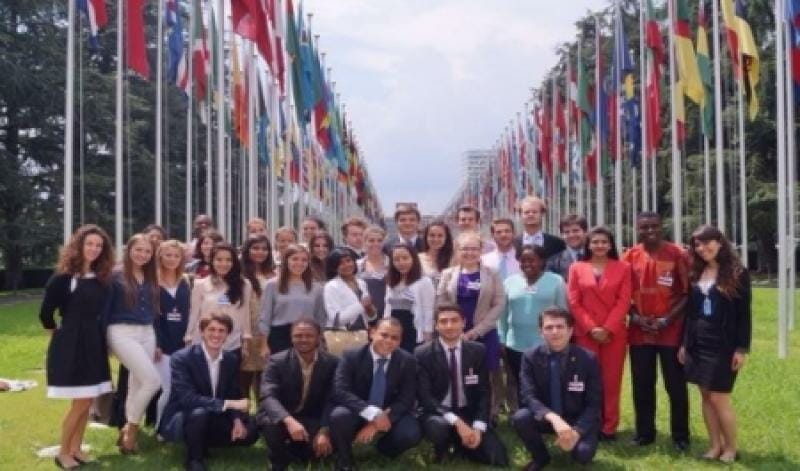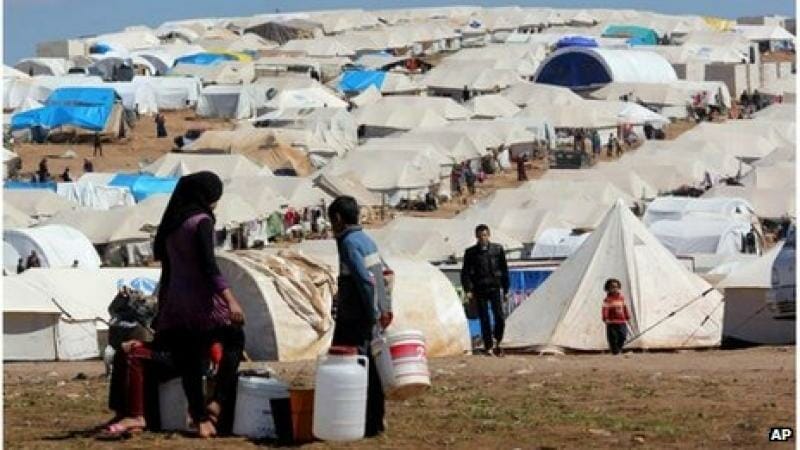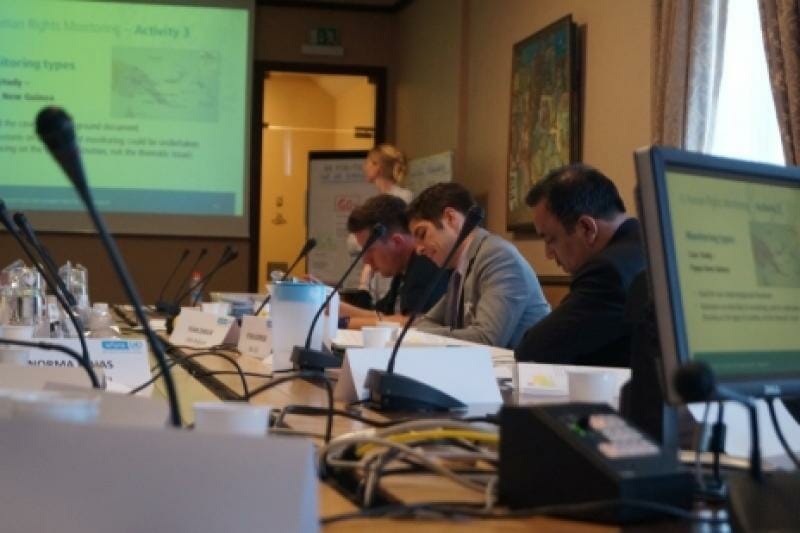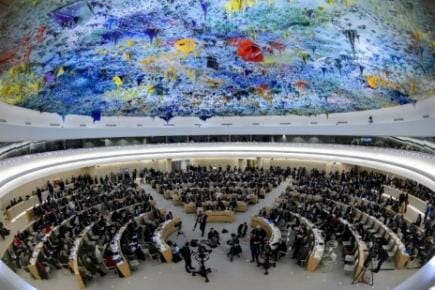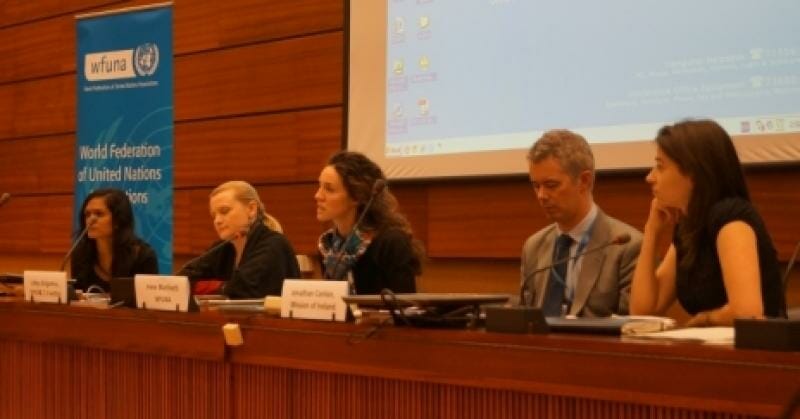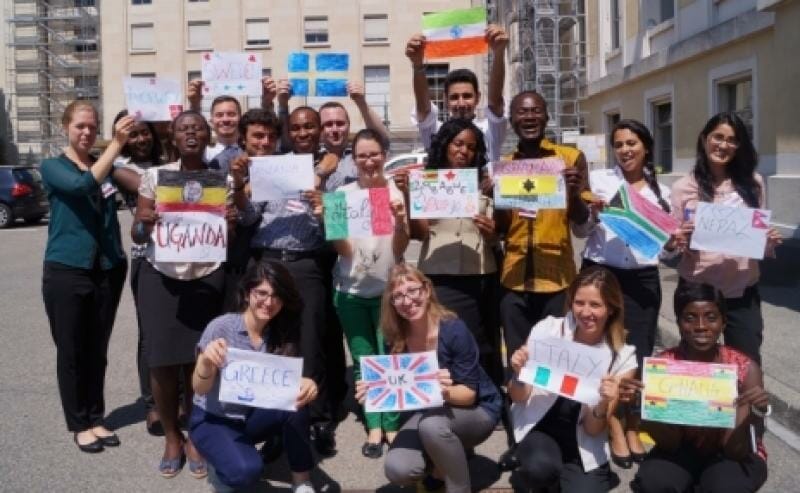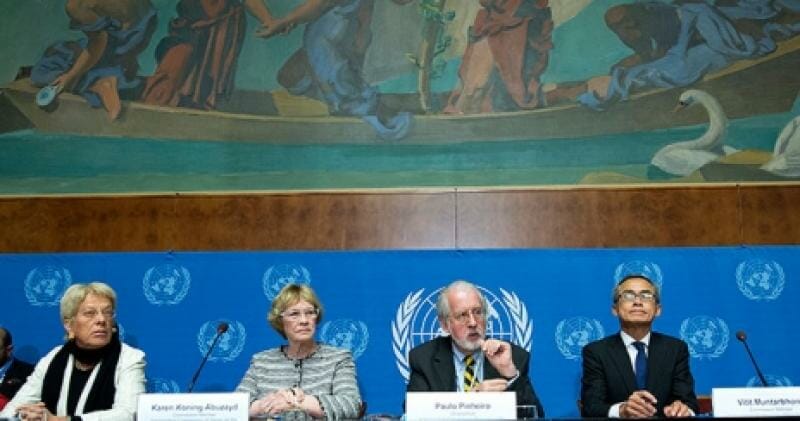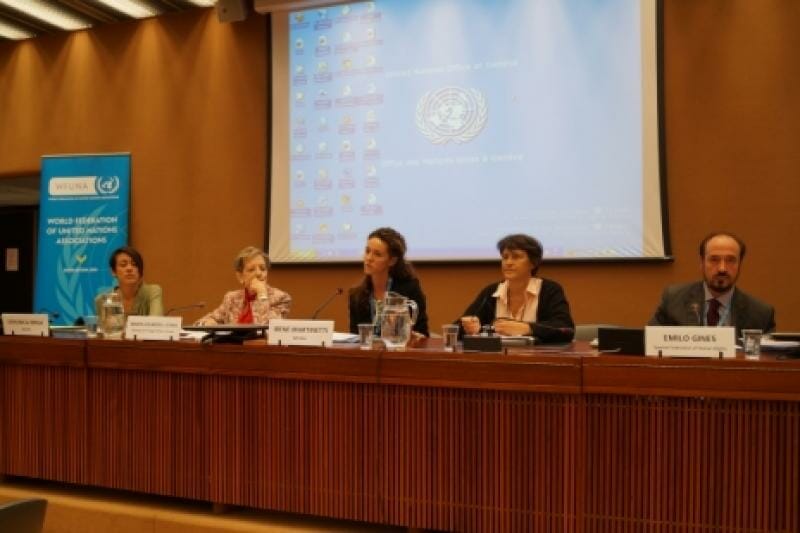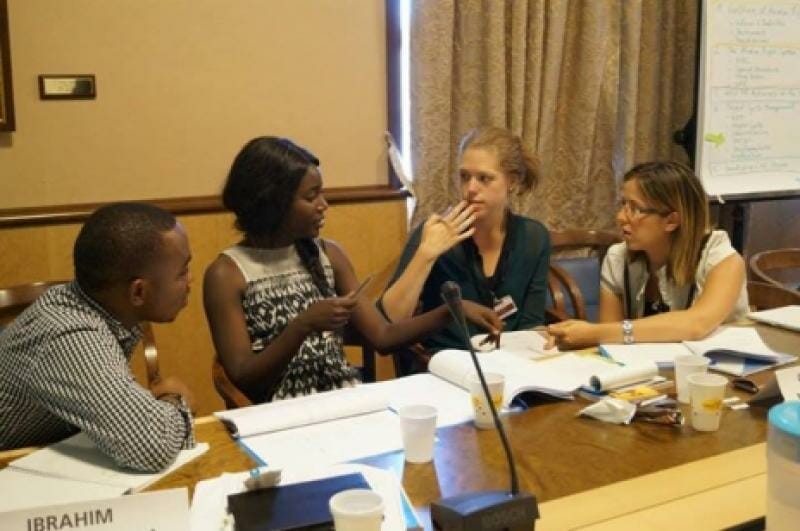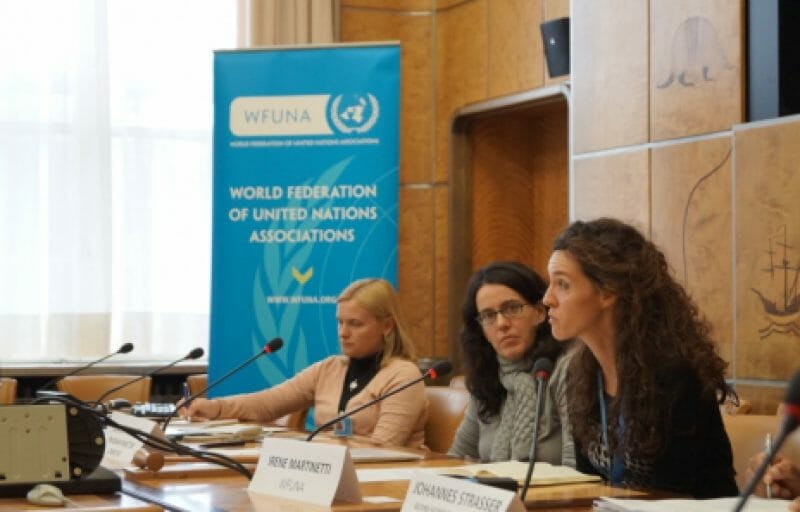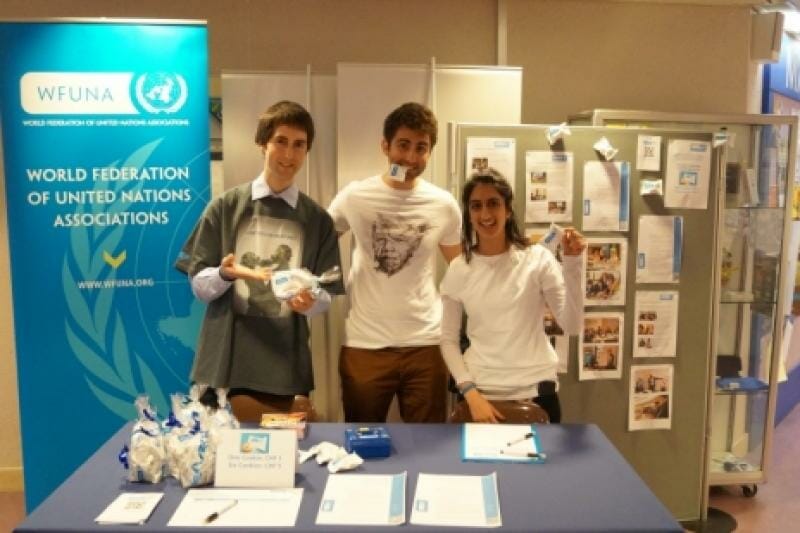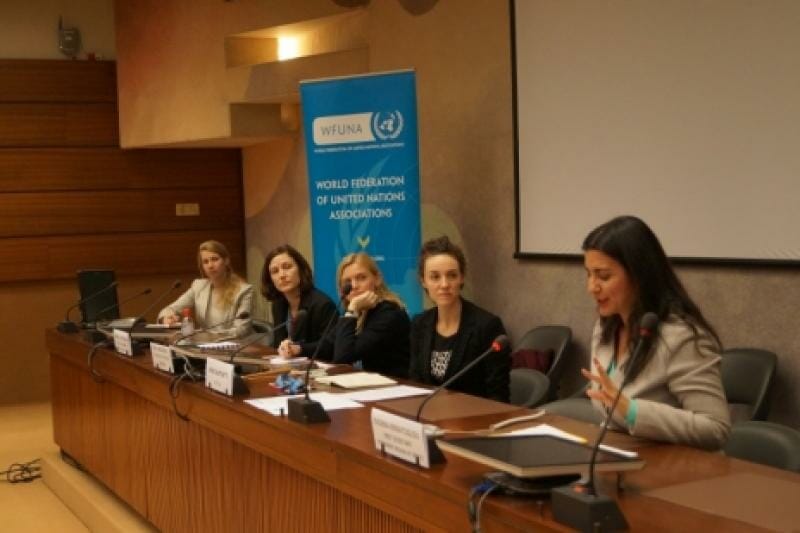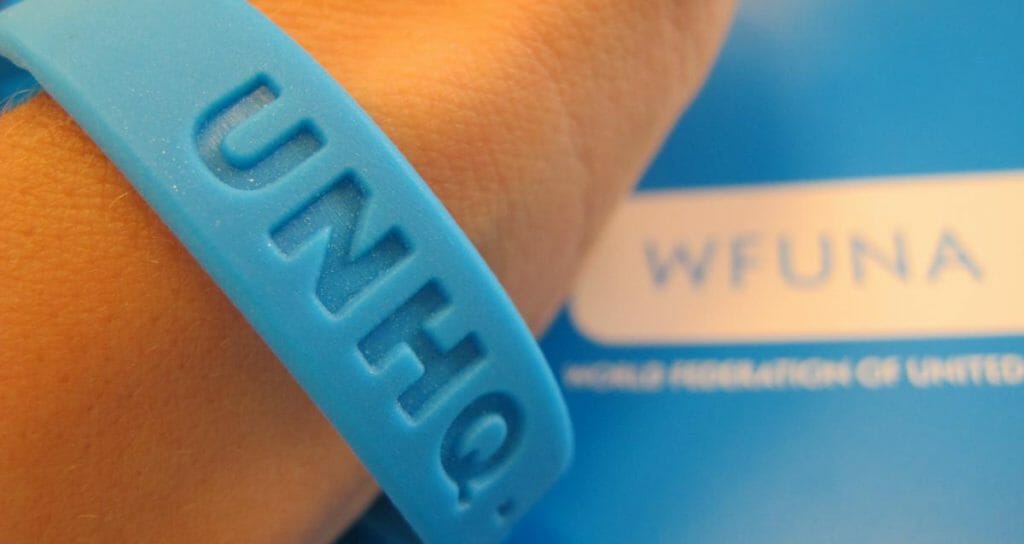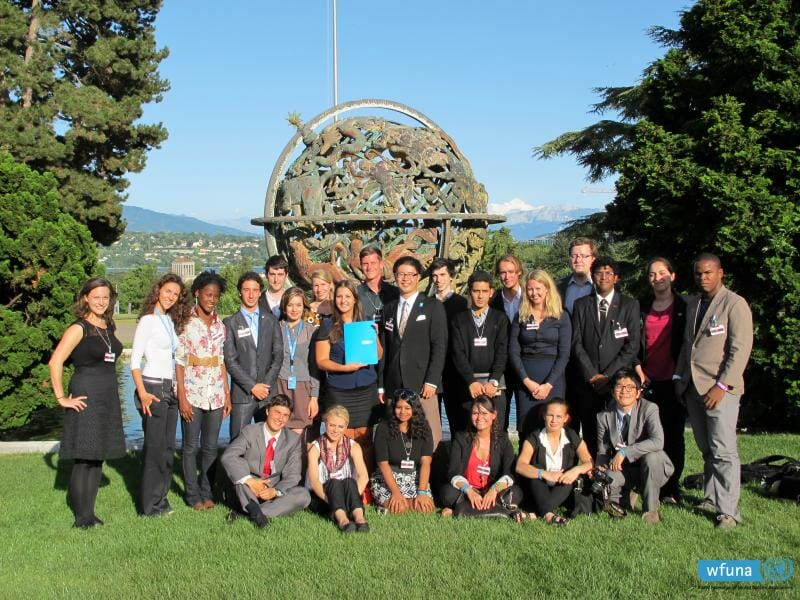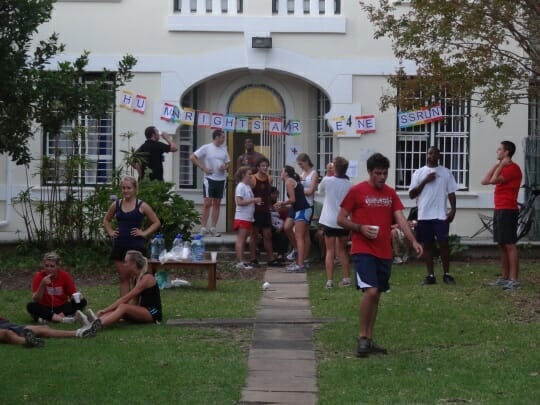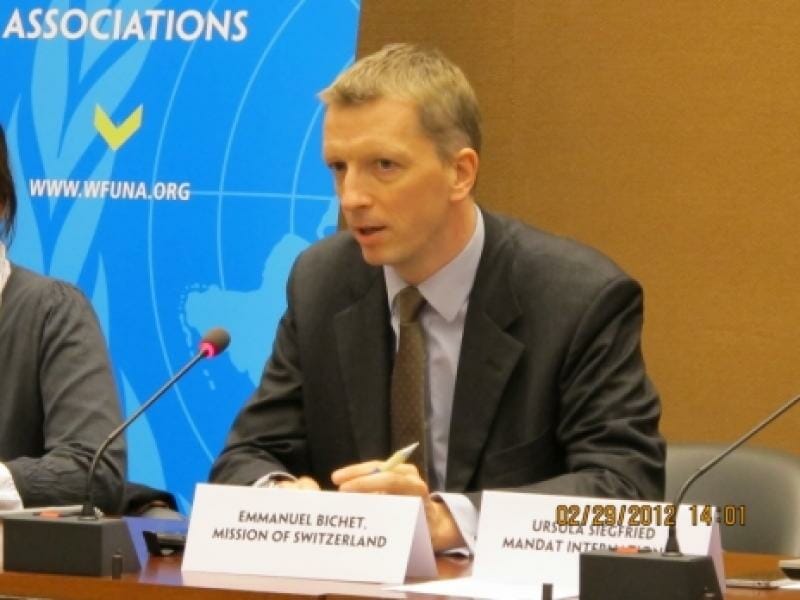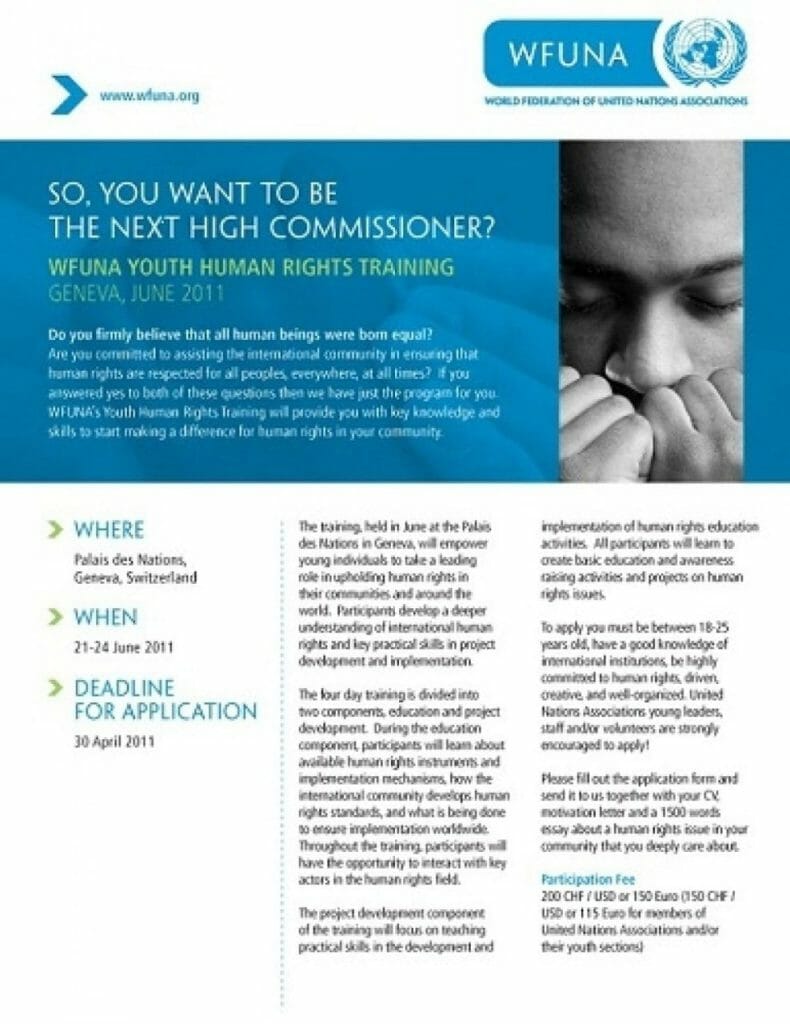Dear Colleagues,
This year we celebrate the Office of the High Commissioner for Human Rights’ 20 years of achievements. Today, OHCHR is the leading institution charged with implementing international human rights and a crucial partner to WFUNA and UNAs worldwide. I would like to take the opportunity to acknowledge the role of WFUNA and United Nations Associations in advocating for the establishment of the Office in the lead up to its creation in 1993.
This has been another eventful year for human rights at the UN. The Human Rights Council (HRC) adopted 107 resolutions, decisions and statements. Landmark resolutions included strong condemnation of violence in Syria, the establishment of a Commission of Inquiry on DPRK, protection of human rights defenders (HRD) – including a resolution on protection of women HRDs, and improved access for persons with disabilities. Mandates for Belarus, DPRK, Eritrea, Iran and Myanmar were extended.
The second cycle of the Universal Periodic Review (UPR) began successfully with 42 States reviewed – including Israel, which returned to the UPR in October – and over 2000 recommendations accepted.
In November, fourteen new members were elected to join the Human Rights Council in 2014. On that occasion, WFUNA joined civil society organizations in encouraging them to uphold the highest human rights standards as they serve their terms.
Many challenges remain, most notably a worrisome drift in cuts to human rights funding, despite a steady increase in demands to the Office. Human Rights is one of the UN’s main pillars, yet OHCHR currently receives less than 3 per cent of funding from the UN’s regular budget. Concerned about this trend, the European UNAs who met in Brussels in November issued an Appeal to their Governments encouraging them to increase both regular and un-earmarked voluntary contributions to the Office.
As funding dwindles, the role of civil society becomes increasingly relevant to ensure that human rights policies are translated into national laws and stay relevant to challenges faced by individuals and local communities worldwide. Building civil society’s capacity to implement human rights standards remains crucial to the fulfillment of the UN’s human rights goals.
To this end, WFUNA continues to strive towards building stronger UNA engagement with the UN Human Rights system. This year, we launched a successful capacity-building program: Civil Society in Action for Human Rights, which empowers UNAs to engage effectively with the UN Human Rights system. Twelve UNAs from all regions of the world are already participating in this program — I encourage you to join them in 2014!


